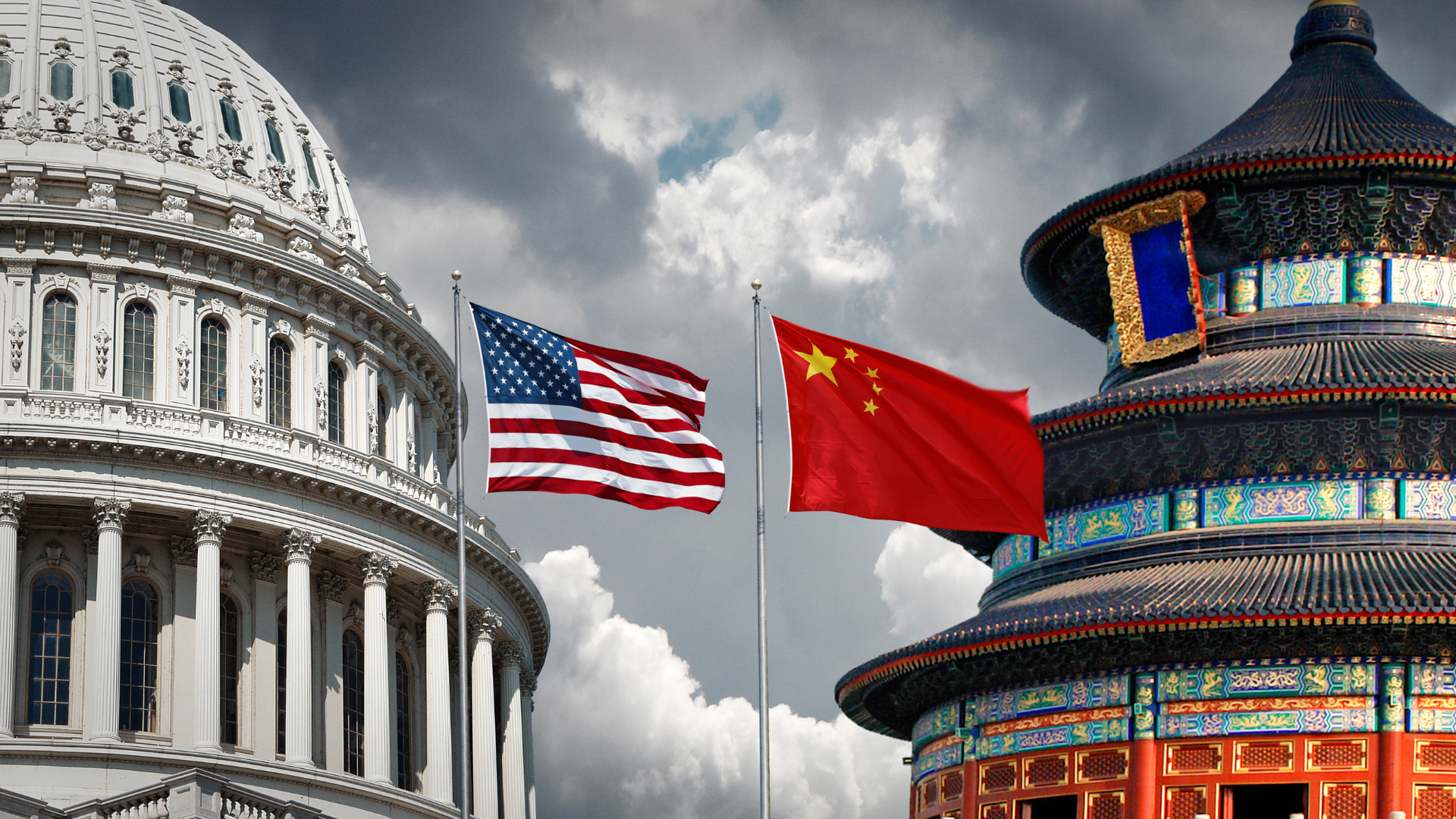The FTC’s Amazon-Temu Blunder: Working With China to Target American Tech

The stunning revelation of the Federal Trade Commission’s (FTC) decision to seek information from a Chinese e-commerce platform, Temu, to build an antitrust case against Amazon reflects an outrageous disregard of the agency’s prosecutorial discretion. However, this collaboration between a U.S. regulatory body and a Chinese Communist Party-linked competitor represents more than just questionable regulatory practice—it reveals a fundamental misalignment between America’s strategic interests and its antitrust policy. The FTC’s decision to work with a geopolitical rival to attack a leading American technology company demands immediate scrutiny and reconsideration by the new Trump administration.
To be sure, the FTC’s case against Amazon was marketed to the public as anything but an opportunity to collaborate with the Chinese firm that constitutes Amazon’s largest global competitor and has now surpassed it in monthly active users. Specifically, the FTC has long proclaimed that its antitrust attack against Amazon was part of an effort to fight for and work with small businesses and ordinary Americans against an alleged monopolist engaged in conduct that, in Khan’s own words, was “hurting consumers and sellers” and that it was “small businesses survival that’s on the line.” The reality of the FTC working with large rival platforms like Temu paints an entirely different picture of what may have been really going on.
Moreover, Temu is not merely a big digital platform. It maintains documented connections to the Chinese Communist Party and faces significant ethical concerns regarding labor practices, intellectual property violations, and data privacy. In fact, Temu was created in 2022 to compete with Amazon. This meteoric rise mirrors China’s broader pattern of using its vast domestic market and state resources to build “national champions” that can then outcompete U.S. firms globally. The idea that the FTC would seek collaboration with such an entity—one that embodies the very market distortions and strategic challenges that American policymakers have long warned about—represents a profound and unacceptable lapse of judgment by an agency that has historically known far better.
Unfortunately, engaging in problematic foreign collaborations to undermine Amazon is nothing new for Khan’s FTC. Early last year, the FTC coordinated with European regulators to block Amazon’s acquisition of iRobot (Roomba’s maker), leading to EU objections that forced the deal’s collapse and required iRobot to lay off a third of its workforce while Chinese state-subsidized competitors gained advantage. This opened the door to Chinese domination in the home robot sector. And, while even coordination with allied nations can raise strategic concerns when targeting companies vital to American technological leadership, working with CCP-adjacent Chinese companies to this end reaches a whole other level of regulatory insanity.
Without question, the FTC’s course of conduct against Amazon, also taken in conjunction with the highly problematic antitrust claims it alleges, can only be explained by a deeply rooted hostility against the company. To be sure, beginning with her flawed law review article, breaking up Amazon has long been former Chair Khan’s cause célèbre, pivoting her in just a few short years from law student to legal stardom. Of course, despite Amazon’s formal recusal requests citing federal ethics rules and due process concerns, Khan declined to recuse herself from the case. In fact, Khan’s disregard for ethical standards in her crusade against Big Tech contributed to the resignation of one of the FTC commissioners, whose ethics objections were smothered by the FTC.
What’s more, the FTC’s collaboration with Temu to acquire ammunition in its antitrust lawsuit against Amazon was clearly at odds with even the broader intergovernmental and bipartisan recognition of the China threat. Specifically, even the Biden administration identified China as America’s primary strategic competitor, with Congress actively working to pass legislation enhancing American competitiveness. All the while, the FTC was working with a Chinese competitor against an American technology leader. Indeed, the fact that the U.S. government banned TikTok over national security concerns while its FTC collaborates with another Chinese platform underscores the disconnect between strategic goals and regulatory enforcement.
The FTC’s decision to collaborate with Chinese Big Tech firms against leading American innovators is particularly troubling given the pivotal US-China rivalry in areas like artificial intelligence. Indeed, leadership in artificial intelligence will shape not only technological dominance but also national economic power, industrial strength, and military advantage. As demonstrated by DeepSeek’s recent development of an artificial intelligence model matching GPT-4 performance levels at substantially lower costs, it is clear that China can innovate at or beyond the capabilities of America’s top tech firms. At bottom, working with Temu to attack Amazon, which has committed billions to drive U.S. AI development, adds the worst kind of insult to an already injurious antitrust policy.
The new Trump administration should realign antitrust policy with strategic objectives. While legitimate antitrust concerns deserve attention, enforcement actions must be calibrated to protect rather than undermine America’s strategic interests. This means fostering constructive collaboration with American companies while preventing antitrust policy from becoming an ideological weapon that advantages foreign competitors. Without such a realignment, continued aggressive regulatory action against leading U.S. technology companies will seriously impair America’s capacity to innovate and maintain its technological edge—particularly in critical areas like AI—precisely when maintaining such leadership is most crucial.
Related
EU denies picking on US tech giants, says US also…
BRUSSELS (Reuters) - Europe's new tech rule aims to keep digital markets
H-1B Visa 2025: How and why US policy shift may…
Recent changes in US H-1B visa policies have sparked significant concern within the Indian IT professional community hoping to work in America. However, the a
Alibaba Group (BABA) Stock: Chinese Tech Giants Gain $439 Billion…
Chinese tech stocks have gained over 40% this year, adding $439 billion in valueChina’s “7 titans” are outperforming the US “Magnificent Seven” tech s
The Global Spread of Protectionist Policies That Squeeze American Tech…
An increasing number of countries in recent years have begun targeting America’s leading technology firms with policies touted as measures to promote fair com













